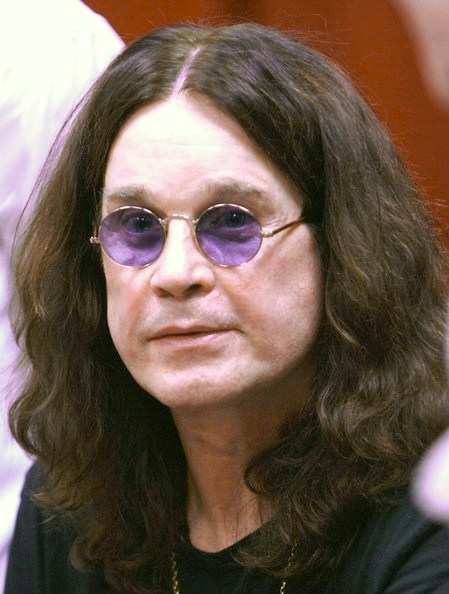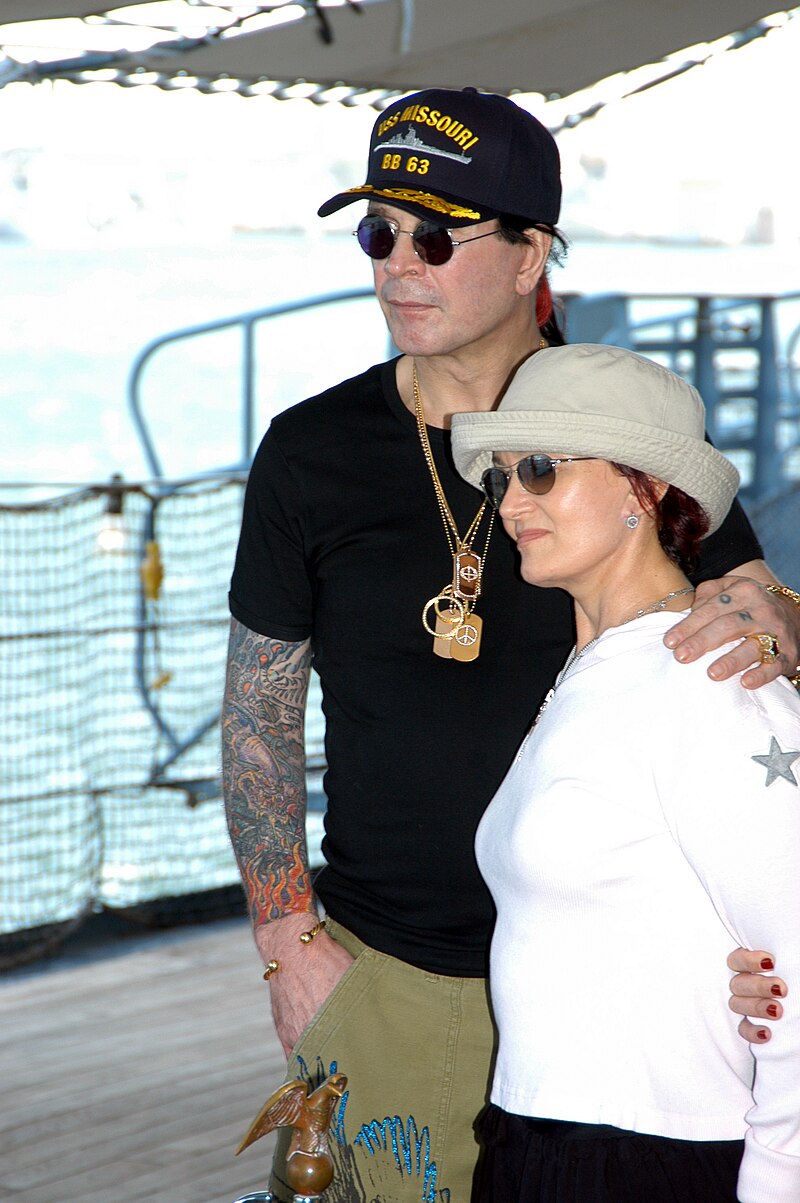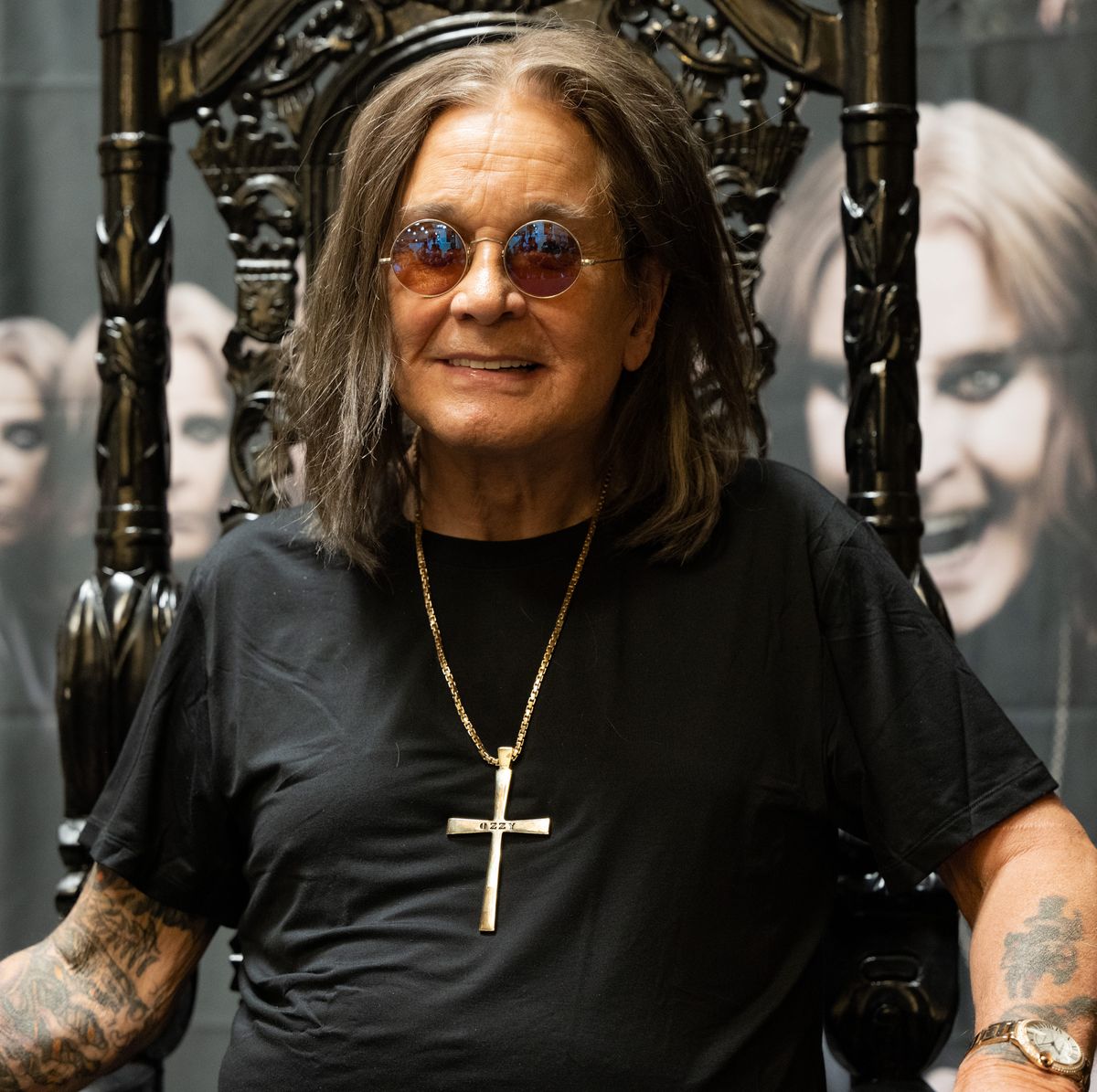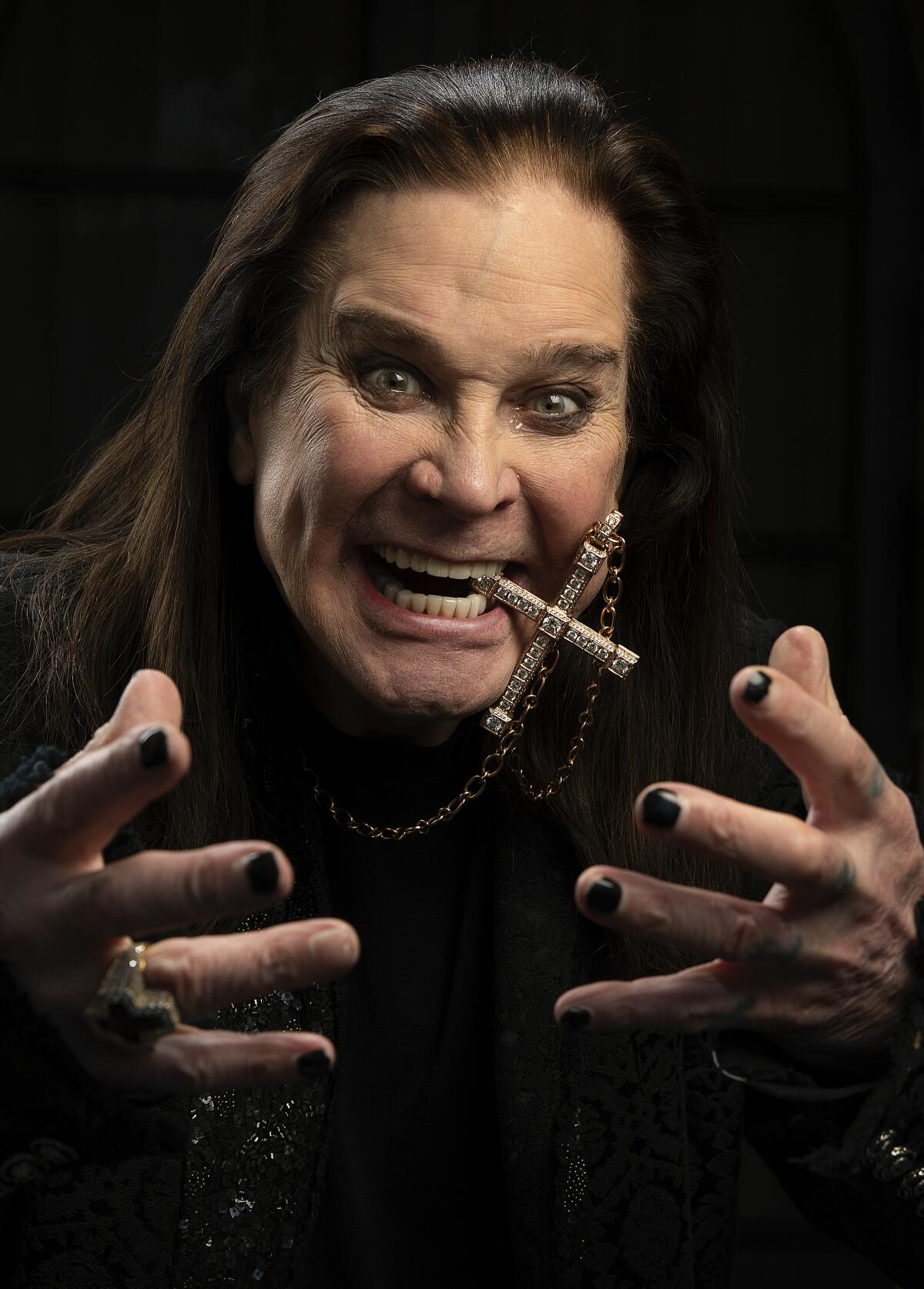Ozzy Osbourne
Ozzy Osbourne

John Michael "Ozzy" Osbourne, born on December 3, 1948, is an English musician and media personality known for his influential role in heavy metal music. He gained prominence as the lead vocalist of the iconic heavy metal band Black Sabbath during the 1970s, earning the nickname "Prince of Darkness" in the process.
Osbourne co-founded Black Sabbath in 1968 and served as the band's lead vocalist until 1978, contributing to acclaimed albums like "Paranoid," "Master of Reality," and "Sabbath Bloody Sabbath." However, due to struggles with alcohol and drug addiction, he was fired from the band in 1979.
Undeterred, Osbourne launched a successful solo career with his debut album "Blizzard of Ozz" in 1980. He has since released 13 studio albums as a solo artist, with the first seven achieving multi-platinum certifications in the United States. Despite parting ways with Black Sabbath, Osbourne has reunited with the band on multiple occasions, including for the recording of their final studio album, "13," released in 2013.
Osbourne's contributions to music have earned him the informal title of the "Godfather of Metal." He has sold over 100 million albums worldwide, encompassing both his solo work and his releases with Black Sabbath. He has been honored with inductions into the Rock and Roll Hall of Fame, the UK Music Hall of Fame, and has received accolades such as stars on the Hollywood Walk of Fame and the Birmingham Walk of Stars.
In addition to his music career, Osbourne became a reality television star in the early 2000s through the MTV reality show "The Osbournes," which featured his family life with wife and manager Sharon, and their children Kelly and Jack. He continues to be involved in television, co-starring with Jack and Kelly in the series "Ozzy & Jack's World Detour."
In late 1967, Geezer Butler formed his first band, Rare Breed, and recruited Ozzy Osbourne as its vocalist. The band performed only two shows before disbanding. Osbourne and Butler later joined forces again in another band called Polka Tulk Blues, along with guitarist Tony Iommi and drummer Bill Ward, both of whom had been part of the disbanded group Mythology. The band changed its name to Earth but later renamed themselves Black Sabbath in August 1969, inspired by the film of the same title.
Noticing the audience's enjoyment of being frightened during their performances, Black Sabbath decided to play a heavy blues style of music infused with gloomy sounds and lyrics. During the recording of their first album, Geezer Butler had a haunting experience after reading an occult book, which led to the creation of the song "Black Sabbath", their first venture into darker themes.
Despite Warner Bros. Records' modest investment, Black Sabbath achieved swift and enduring success with their debut album and subsequent releases. The combination of Tony Iommi's guitar riffs, Geezer Butler's lyrics, Bill Ward's dark tempo drumbeats, and Ozzy Osbourne's eerie vocals propelled the band to commercial success and considerable radio airplay.
During this time, Osbourne met Sharon Arden, daughter of potential manager Don Arden, who later became Black Sabbath's manager. Osbourne was immediately attracted to Sharon, although their relationship remained strictly professional at first.
Black Sabbath released several successful albums in quick succession, including "Paranoid", "Master of Reality", and "Black Sabbath Vol. 4". "Paranoid" received platinum certification and was critically acclaimed, despite initial unfavourable reviews. "Sabbath Bloody Sabbath" marked a turning point for the band, receiving favourable reviews and becoming their fifth consecutive platinum-selling album in the US.
However, by the mid-1970s, the band faced mixed reviews with albums like "Sabotage" and "Technical Ecstasy", with critics noting a decline in the band's magical chemistry and cohesion. Despite this, Black Sabbath remained influential in the heavy metal genre, leaving a lasting impact on the music industry.
In 1978, Ozzy Osbourne embarked on a solo project called Blizzard of Ozz, prompted by his desire for creative independence. The name "Blizzard of Ozz" was suggested by his father. He collaborated with three members of the band Necromandus, who had previously supported Black Sabbath during their early years as Earth, to form the initial lineup of his solo band.
However, Osbourne's departure from Black Sabbath was short-lived, as the band members requested his return. They then spent several months at Sounds Interchange Studios in Toronto, where they recorded their next album, "Never Say Die!". The recording process was marred by drug use and tensions within the band. They struggled with substance abuse, leading to inconsistent and unfocused recording sessions.
"Never Say Die!" was followed by a tour with Van Halen as the opening act. Reviews of Black Sabbath's performances during this tour were mixed, with critics noting a lack of energy and enthusiasm compared to the youthful vigor of Van Halen.
The tensions within Black Sabbath continued to escalate, particularly between Osbourne and guitarist Tony Iommi. In April 1979, at Iommi's insistence and with the support of other band members, Osbourne was ejected from Black Sabbath due to alleged unreliability and excessive substance abuse issues.:max_bytes(150000):strip_icc():focal(999x0:1001x2)/Ozzy-Osbourne-Life-Pics-091523-1-aa1353c85ff54f79b7f37f865f3c7911.jpg)
Black Sabbath replaced Osbourne with Ronnie James Dio, former singer of Rainbow. Dio acknowledged Osbourne's significant role in shaping the band's identity but made it clear that he was not seeking to replace him entirely.
The conflict between Osbourne and Iommi dated back to their early days, with Iommi recalling instances of physical altercations due to Osbourne's behavior while under the influence of alcohol and drugs. Despite their creative collaborations, their personal relationship was tumultuous, marked by incidents of violence and confrontation.
The departure of Osbourne marked a significant turning point in Black Sabbath's history, leading to a new era with Ronnie James Dio as the frontman. However, Osbourne's influence and legacy within the band remained undeniable, despite the challenges they faced during his tenure.
References
- "Black Sabbath". AllMusic. Archived from the original on 16 August 2015. Retrieved 21 July 2015.
- ^ "Ozzy Osbourne Stares Down His Demons with a Smile on 'Ordinary Man'". Rolling Stone. 21 February 2020.
- ^ Bader, David Von (30 July 2013). "Ozzy Osbourne, the Prince of Darkness, on His Nickname: "It's Better Than Being Called an Asshole"". Retrieved 7 September 2018.
- ^ "Ozzy Osbourne: the Godfather of Metal". NYRock.com. June 2002. Archived from the original on 31 October 2013. Retrieved 16 December 2009.
- ^ Emre, Yunus (15 May 2023). "When did Ozzy Osbourne leave Black Sabbath?". Metal Shout. Retrieved 16 May 2023.
- ^ Wall, Mick (1986). Diary of a Madman – The Official Biography. Zomba Books.
- ^ Ozzy Osbourne To Receive Billboard's Legend Of Live Award Billboard; retrieved 8 December 2010
- a b c Weber, Barry (2007). "Ozzy Osbourne Biography". AllMusic. Archived from the original on 18 August 2015. Retrieved 17 February 2008.




































